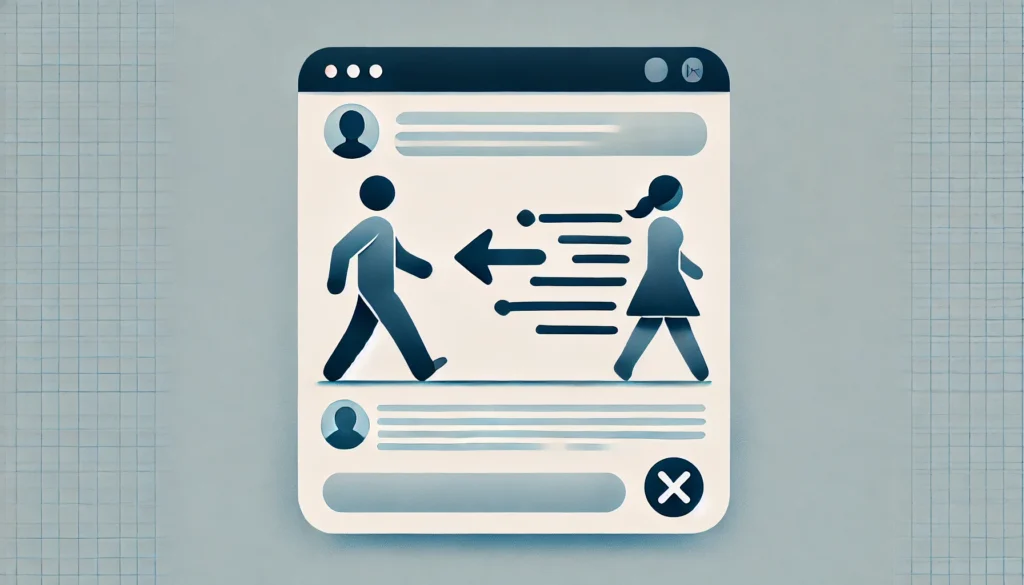
Unfriending someone on Facebook might seem like a simple click of a button, but it can carry a surprising amount of emotional weight. Social media has increasingly become an extension of who we are—our values, interests, and social circles are all on display. That’s why it can sting when you notice that your friend count has dropped by one, especially when you can’t immediately guess who’s missing or why they decided to sever the digital connection. Although every scenario is unique, there are a few common reasons users choose to unfriend people. Understanding these motivations can help you make peace with the loss or, at the very least, satisfy your curiosity.
(Curious to find out exactly who unfriended you? Click here to try Still Friends and never wonder again.)
An Offline Falling Out
Friendships ebb and flow in real life, and social media connections often mirror these offline dynamics. If you’ve drifted apart from someone, experienced a conflict, or ended a friendship over personal differences, it’s not surprising that the virtual tie will be cut as well. After all, if the relationship no longer exists in the real world, maintaining it online can feel disingenuous. Unfriending in this case is less about a dramatic gesture and more about reflecting the current state of your personal life.
(Wondering if a recent falling out is now reflected online? Check with Still Friends to find out.)
Negative or Controversial Posts
Facebook, like all social platforms, can easily become a forum for strong opinions. At times, disagreements on politics, social issues, or lifestyle choices can prompt someone to cut ties. If a user’s timeline repeatedly displays divisive viewpoints, personal attacks, or a generally negative tone, followers may decide it’s just not worth the emotional energy to keep them around. Unfriending is often a way to maintain a healthier digital environment. In other words, when someone sees content that doesn’t sit well with them—whether it’s negativity, hateful rhetoric, or a barrage of hot-button topics—they may choose to protect their mental well-being by trimming their friend list.
(Not sure who’s been put off by your content? Identify who’s unfriended you and regain some control over your social circle.)
The “Facebook Purge”
Over the years, it’s easy for your Facebook friend list to balloon. Former classmates, ex-coworkers, acquaintances from a hobby group you’ve long since left—all of these connections might still be lingering in your digital circles. Periodic “friend purges” are a common way to manage this clutter. People may unfriend those with whom they’ve lost touch, simply as a form of housekeeping rather than a personal slight. If you find yourself removed, it may just be a matter of not making the cut during their latest round of social media housekeeping, rather than any ill will.
(Want to see who made the cut and who didn’t? Discover who’s no longer on your friends list with Still Friends.)
Forgetting Who’s Who
We’ve all experienced that moment of scrolling through our friend list and pausing at a name that draws a total blank. “Who is this person again?” If someone doesn’t remember how you connected—perhaps you met at a conference years ago or you had a brief online interaction—unfriending feels like a logical step. Additionally, if you’ve changed your profile picture to something abstract or switched up your display name to something clever but unrecognizable, you may inadvertently sever the association in people’s minds. Unable to recall who you are or why you’re connected, they may simply hit “unfriend” to simplify their list.
(Not sure who’s forgotten about you? Find out who’s no longer on your list with Still Friends.)
What to Take Away
At its core, unfriending is about curating a personal digital experience. Whether it’s the fallout of an offline conflict, discomfort with your content, a routine friend list cleanup, or just a loss of recognition over time, most unfriending behavior is less dramatic than it seems. People are carving out social media spaces that reflect their current interests, values, and relationships.
If you find yourself on the receiving end of an unfriend notification, try not to read too deeply into it. Instead, consider the possible reasons and remember that online relationships, like all relationships, grow and change. Unfriending doesn’t necessarily mean you’ve done something wrong—it often just indicates that someone’s digital circle is shifting to better fit their life as it is today.
(Ready to get clarity on your friend list? Check who unfriended you with Still Friends and stay informed.)